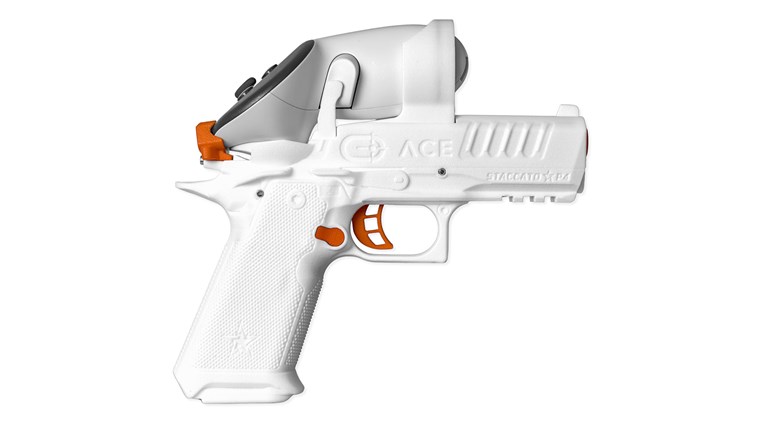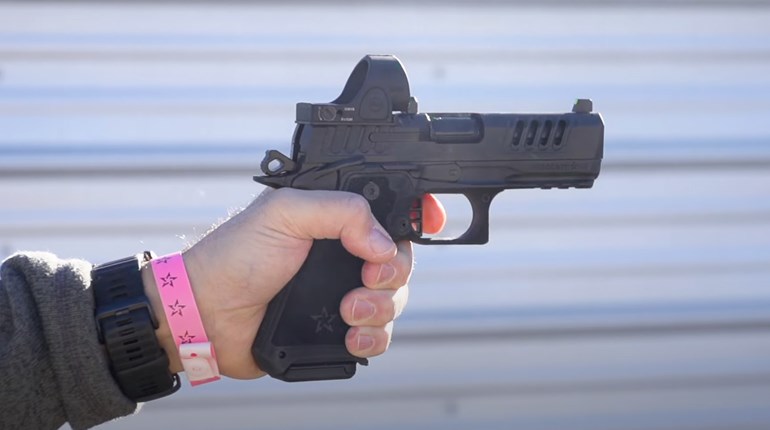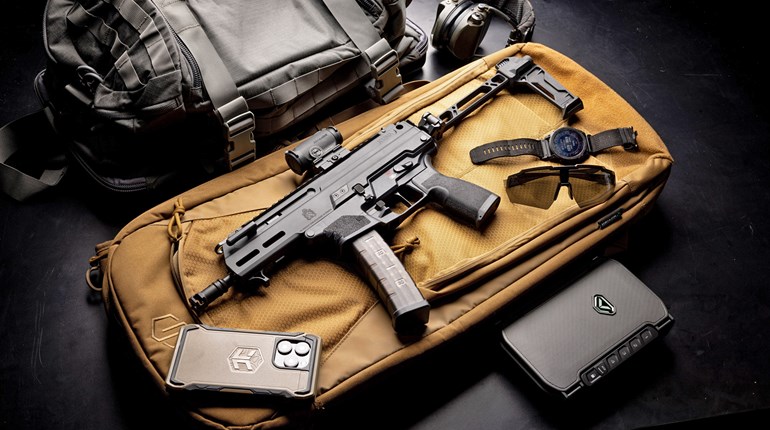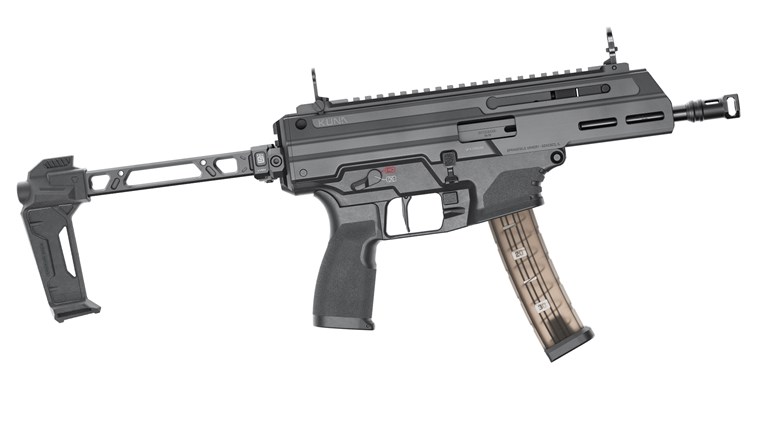For our November 2020 Handbook, Richard Mann pulled together a half-dozen drills culled from some of the most renowned self-defense trainers in the industry. One of the drills Mann included was what he calls the “Forty-Five” drill, not because it’s designed for testing 1911s, but because of the various factors involved. Mann uses this drill as a standard test when he’s evaluating handguns, as it provides a practical measure of how well suited a pistol may be for self-defense.
The Forty-Five drill is so-named because it has four components, all with “five” somethings. It involves five rounds, fired in 5 seconds or less, at a 5-inch target from a distance of 5 yards. All five rounds must land inside the five-inch circle within the time limit specified to “pass” the drill. It is intended to be conducted with a concealed pistol to more accurately assess the drawstroke and target acquisition in addition to shooting speed and accuracy.
Mann assigns a point system to the drill as well, so that once you’ve mastered getting five shots on target in 5 seconds or less, you can still chart progress. Each hit (inside the circle) is worth 4 points, and your score is the total points minus the time. Mann assigns 15 points as the minimum for qualifying—which precludes misses, as you would automatically be starting with 16 points before you deduct time. For example, getting all five shots in the circle in 4 seconds even would be a 16.
The Forty-Five drill is an excellent method to assess your carry method as well as your drawstroke in conjunction with your ability to rapidly acquire a target and your shot-to-shot variability. If there are any deficiencies in any of these areas, they should become apparent quickly, and you can see where you need to devote more of your practice. Best of all, you can perform this test with a J-Frame revolver and not have to worry about a reload!
























